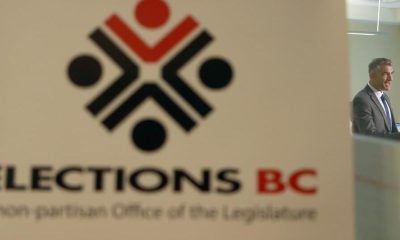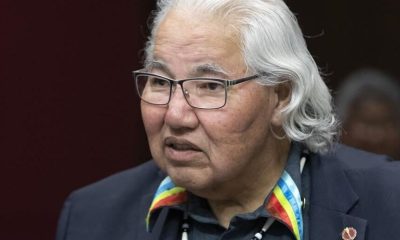In 1621, the Dutch East India Company—the Vereenigde Oost-Indische Compagnie, or V.O.C.—arrived at the Banda Islands with a formidable navy. The global spice market was fiercely competitive, and a number of European powers had already sailed to this Indonesian archipelago and tried to strong-arm the locals into accepting various treaties. The V.O.C. had recently sought a monopoly on the spice trade with the islands, home to the precious nutmeg. Nutmeg, valued for its culinary uses and its medicinal properties—rumor had it that it could cure the plague—had long been traded across vast networks that traversed the Indian Ocean and linked Africa and Eurasia. At one point, a handful of the seeds could buy a house or a ship. But the V.O.C. couldn’t secure a deal. The islands lacked a central authority; instead of kings or potentates, they merely had respected elders.
Frustrated, the Dutch turned to a military tactic of extortion they called brandschattingen—threatening an enemy with arson—and swiftly delivered on the threat, torching the villagers’ houses, food stores, and boats. Dutch forces captured and enslaved as many of the Bandanese as they could, and murdered the rest. Soon after the massacre, the V.O.C. became, by some measures, the largest company in human history, worth more than ExxonMobil, Apple, and Amazon combined.
“Like a planet, the nutmeg is encased within a series of expanding spheres,” Amitav Ghosh writes in his illuminating new book, “The Nutmeg’s Curse” (Chicago), which begins with this grisly episode. Surrounding the nutmeg core are other layers, notably a lacy red mantle called mace, which is itself traded as a precious commodity, while the exterior of the dried seed is grooved with ridges that evoke geological structures. Ghosh carves through the historical layers of the global exploitation of nutmeg and the genocide and domination that made it possible. “No trade without war, and no war without trade,” Jan Pieterszoon Coen, the fourth governor-general of the Dutch East Indies, declared.
Ghosh has a larger point. Extraction, violence, empire: all these perennials of human history tend to march together. The global marketplace, created and shaped by forays like the V.O.C.’s in Indonesia, is fixated on growth in ways that have led to an era of depredation, depletion, and, ultimately, disruptive climate change. Ghosh wonders whether our planet, after four centuries of vigorous terraforming, has begun to turn against its settlers, unleashing wildfires, storms, and droughts. It sounds like nature’s own version of brandschattingen.
Given that the heedlessness of the global marketplace got us into the climate crisis, you might be skeptical that more of the same will get us out of it. But many governments have adopted a hair-of-the-dog approach, embracing market-based solutions such as emissions trading and carbon taxes. The results have been discouraging: global emissions have been rising quickly, and we’ve fallen short on nearly every indicator of climate progress. (The aim has been to limit global temperature increases to 1.5 or two degrees Celsius, in the hope of avoiding the most catastrophic scenarios of climate change.) Although market-based approaches can yield incremental improvement, there’s little evidence that they can produce the “transformational” change that U.N. scientists say is necessary.
If the market is still treated as a default source of solutions, Ghosh suggests, it’s because, in a world created by corporations such as the V.O.C. and colonial sponsors such as the imperial Dutch, everything, including the planet, is considered a resource to be exchanged or exploited, and progress and “rationality” are measured in impersonal dollars and cents. Profit and security are reserved for those at the top of the world’s hierarchies, and are achieved by shifting the risks and the burdens toward those at the bottom. Some people get a storm-surge barrier—a specialty of certain Dutch multinationals—and exquisitely climate-controlled interiors; others watch their villages be swallowed by the sea.
If you’re wedded to market solutions, you’ll insist that our failure to act arises simply from suboptimal legal rules and market conditions. Maybe all we need are a few technical adjustments in pricing or institutional design. But our paralysis didn’t arise from happenstance. Every decade that we delay comprehensive climate action is another decade that certain companies can profit from their stake in the world’s energy system. Activists and reporters have exposed well-funded and elaborate misinformation campaigns sponsored by these companies. The revelations haven’t made much difference.
What Kate Aronoff shows, in her timely book “Overheated” (Bold Type), is that the “old-school” approach to corporate climate denial has given way to new, subtler strategies. Yesterday’s denialists insisted that climate change was a hoax, funding dodgy science and blitzing coöperative media outlets such as Fox News with industry “experts.” But under mounting public pressure many companies have withdrawn their support from denialist think tanks like the Heartland Institute; those companies are now funding academic research at big-name universities that shy away from overt climate-change denial.
One of the new strategies is to acknowledge climate change but to put polluters in charge of remedying it. Aronoff describes a 2018 proposal by Royal Dutch Shell, billed as a pathway to two degrees Celsius, that would have maintained similar levels of fossil-fuel production for decades. The scenario depended on carbon removal deployed on an immense scale—orders of magnitude above our current capabilities, and with potentially dangerous implications for food, energy, and water security. Earlier this year, Shell was rebuked by a Dutch court, which ordered the company to reduce its carbon emissions by forty-five per cent by 2030.
Despite such setbacks, oil and gas corporations have largely succeeded in slowing the energy transition that threatens their bottom line. Even from a technocratic perspective, though, our inaction on climate is irrational. Any serious long-term financial projection should take note of the fact that mass death, disease, and destruction are likely to make everybody worse off. One recent study estimates that as many as a billion people could be displaced during the next fifty years for every additional degree of warming, implying a level of social upheaval that might involve pitchforks. Even the International Energy Agency, an organization started by Henry Kissinger, now calls for a halt to all new oil and gas fields. Giant corporations such as Chevron and Exxon have been attacked for their inaction on the climate crisis not just by Greenpeace supporters but by their own shareholders, who insist that the safety of their investments depends on cutting emissions.
Why haven’t governments and political institutions forced a course correction? That’s a question taken up in “White Skin, Black Fuel” (Verso), by Andreas Malm and the Zetkin Collective, of Scandinavia. The book shows how, in the political arena, arguments about economic rationality get woven together with hierarchical structures and the pursuit of domination, portending what it calls fossil fascism. In particular, its authors are struck by how the European far right has used the “funnel issue” of hostility toward immigration to promote hostility toward renewable energy.
“Migrants are like wind turbines,” France’s Marine Le Pen has remarked. “Everyone agrees to have them, but no one wants them in their back yard.” To the north, the far-right Finns Party (formerly known as the True Finns) led a national campaign against wind turbines, featuring a press conference in which a man wept over the damage he believed the structures had inflicted on him and his family via infrasonic waves. The Party even published a cartoon—detailed in “White Skin, Black Fuel”—in which a Black man dressed only in a grass skirt makes hysterical climate predictions, flanked by a diminutive woman, evidently a Finnish regulator, who insists that “we have to spend more on wind turbines.” Oil companies have learned subtlety, but these far-right parties have other priorities.
“Even after fulfilling their ambitions in the region, the officials of the V.O.C. were never satisfied with their spice monopoly,” Ghosh writes. He attributes this reaction to a framework he terms the “world-as-resource,” in which landscapes are considered to be factories, and nature, like a native population, is viewed as a proper object of conquest. In Indonesia, the V.O.C. eventually followed up the massacre of a people with an effort to extirpate a botanical species. When the price of nutmeg fell, the company tried to limit the global supply of the spice by eradicating every nutmeg tree outside the Dutch plantations on the Banda Islands.
Spectacles of destruction like these would seem to reflect the often maligned workings of the profit motive, as people such as Erik M. Conway and Naomi Oreskes have stressed. But Ghosh, mulling over why the world has been so slow to decarbonize, thinks that this explanation is incomplete. He wants us to reckon with broader structures of power, involving “the physical subjugation of people and territory,” and, crucially, the “idea of conquest, as a process of extraction.” The world-as-resource perspective not only depletes our environment of the raw materials we seek; it ultimately depletes it of meaning.
The authors of “The Nutmeg’s Curse,” “Overheated,” and “White Skin, Black Fuel” have different stories to tell about our bafflingly self-destructive climate politics. But they mesh into a broader narrative about hierarchy, commerce, and exploitation. An account of why climate politics is broken, needless to say, won’t tell us how to fix it. Still, these authors do venture some ideas. The second half of “Overheated” sketches out the contours of a “postcarbon democracy”; we learn about ongoing political efforts to redistribute the ownership of utilities from investors to communities, and about the promising 2018 struggles of public employees against the governments of fossil-fuel-reliant states such as West Virginia, Kentucky, and Oklahoma. “The Nutmeg’s Curse” sees potential in what it calls a “vitalist” politics, and in an associated ethic of protection that would extend to “rivers, mountains, animals, and the spirits of the land.” Ghosh identifies this ethos, in contrast to the world-as-resource view, with peasants and farmworkers in Asia, Africa, and Latin America—places and people long seen as peripheral to history. He also draws our attention to legal victories by indigenous peoples, including the Inter-American Court of Human Rights ruling, in 2012, that the rights of the Sarayaku people, in Ecuador, had been violated when an oil company dug wells on their lands without consulting them; and court rulings that side with the Standing Rock Sioux Tribe in its struggle against the Dakota Access Pipeline.
These victories aren’t on the scale of the challenges we face, and the political proposals may feel airily idealistic—more of a wish list than a to-do list. Still, getting serious about climate change, as these micro and macro histories make clear, means aiming higher than defeatist “realism.” Climate catastrophe isn’t going to be averted simply by our changing the way we think about the planet and its peoples—but it’s likely to arrive sooner if we don’t. ♦




































